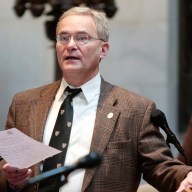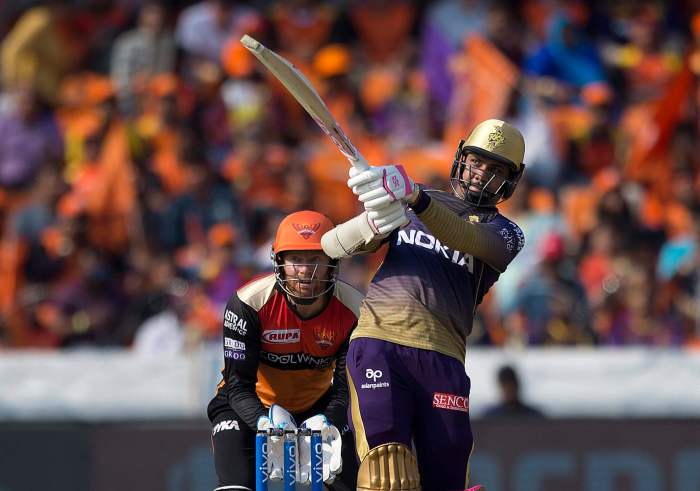VANCOUVER, B.C. – While the global economic crisis has been a dark cloud hanging over the organization of Vancouver’s 2010 Olympic Games, experts say that, if a recession had to happen, the timing couldn’t be better for the event.
Organizers are struggling with everything from a cost overrun as a result of the credit crisis and slumping housing market to possibly lower-than-expected advertising revenue. But most of the big-spending and revenue-generating parts of the Olympics were locked in before the financial crisis hit.
And with predictions of an economic recovery beginning in the second half of 2009, experts believe the economic clouds could dissipate just in time for the Olympic flame to be lit in February 2010.
“In a perverse way, it’s a good thing this is happening now and not years ago when the Games were being proposed,” said Patricia Croft, chief economist at RBC Global Asset Management.
But Croft said the Olympics have still been caught up in the global financial turmoil, a series of events very few predicted would be so severe.
“It’s one of those bizarre things. I’m sure when the organizers sat down and were talking about the ‘what ifs’ this one wasn’t on the radar screen,” Croft said.
Dave Cobb, executive vice-president of revenue for the 2010 organizing committee known as VANOC, said organizers planned for economic swings in the years leading up to the event, but not really a recession.
That said, the committee also didn’t plan for the economy to grow as much as it did before the economic downturn, Cobb said.
“If you average it out, despite what happened in the last year, it’s probably about what we expected,” Cobb said.
Still, to be cautious, VANOC recently revised its budget by cutting millions of dollars out of the back-end of the Games and boosting spending on operations.
The operating budget is now set at $1.75 billion, an increase of $127 million from the original estimate of $1.63 billion.
The revised budget includes higher-than-expected ticket and merchandise revenue, but organizers plan to hire 100 fewer people. VANOC is also cutting its annual three per cent salary increase for employees and will spend less on ads for tickets and Games-related publications.
VANOC is also increasing its rainy day fund by $27 million. That is on top of a $50 million contingency fund, which once stood at $100 million but it has already been tapped to cover the rising cost of staging the Games.
VANOC has a separate $580 million budget for venues.
VANOC is also adamant that existing sponsors are staying put, even those facing their own financial problems such as Nortel Networks (TSX:NTL) and General Motors (NYSE:GM).
Nortel, which recently filed for bankruptcy protection from creditors while it restructures, has a supplier agreement for the event worth between $3 million and $15 million.
Auto giant GM, which is part of a US$4 billion auto sector bailout from the federal and Ontario governments, has said it too remains committed to its sponsorship, which includes providing vehicles to VANOC.
Vancouver-based mining company Teck Cominco (TSX:TCK.B), which is to provide the metal for the Olympic medals, also remains on board despite announcing large job cuts and asset sales to pay down a huge debt recently added to its books after a friendly takeover.
A Teck spokesperson said the company made a commitment to VANOC “and we plan to honour that commitment.”
Another fallout from the global financial crisis is the building of the Olympic athletes village in Vancouver.
The original lender on the project stopped payment on its loan to developers in the fall because of cost overruns and a crashing real estate market.
Now the City of Vancouver is looking to borrow the remaining $450 million needed to finish the village, as well as advance the next construction payment due to developers.
That has caused credit agencies Standard and Poor’s and DBRS to place the city’s credit rating under review, with negative implications.
The costs of the $1-billion project, which will house 1,100 athletes during the Games before being converted to private housing, breaks down into $193 million for land, $750 million for construction and $125 million for cost overruns.
Jock Finlayson of the Business Council of British Columbia said VANOC isn’t to blame for the economic issues that have plagued the Games to date.
“If VANOC can deliver on its business plan in line with its parameters and budget, then that’s a success,” he said.
And, because the venues are near-complete and the sponsorships and TV rights deals are in place, Finlayson said the real determination now is if the number of visitors expected to attend will keep with estimates.
Tourism Vancouver has estimated about 350,000 visitors to the city during the Olympics. It said those numbers could move up or down depending on where purchasers of the estimated 1.6 million tickets sold for the event are based, which is expected to be known soon.
Norm O’Reilly, director of the School of Sports Administration at Laurentian University, said if the event is done properly, it has the potential to create jobs and benefit the economy in the longer-term.
He points to the economic benefits from the 1988 Winter Olympics in Calgary, which now brings in athletes and coaches to train at the old venues.
O’Reilly said the Olympics should be looked at like other infrastructure spending projects that governments are relying on to help the economy recover.
“You can argue the money could have gone elsewhere, but it does fit that genre of things that generate revenue,” O’Reilly said.
Croft agrees that the Olympics could be a positive economic story, especially closer to when the event happens.
“People will be looking for some relief from the relentless stream of bad news,” Croft said.
“Hopefully the timing of this will be such that we can not only be celebrating the Olympics, but celebrating the fact that the worst of the great credit crisis is behind us.”
A few gold medals wouldn’t hurt either.
















